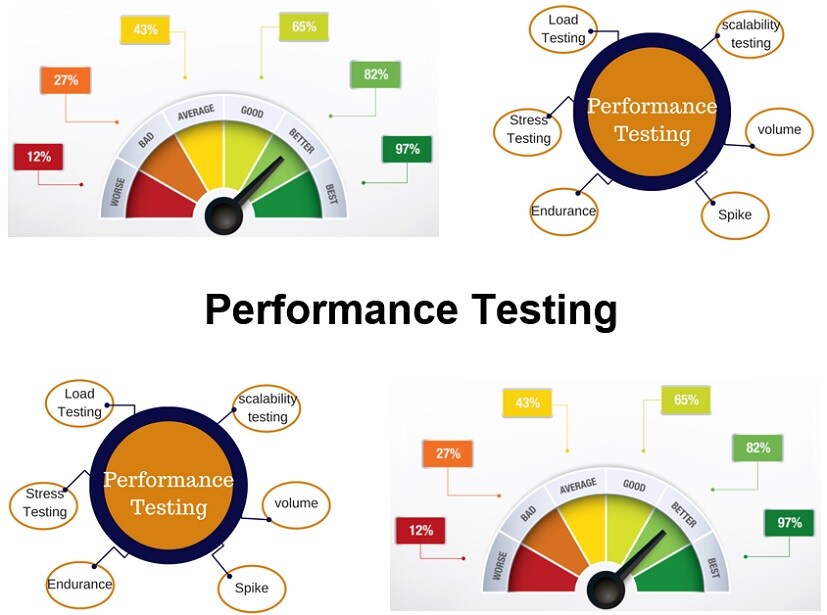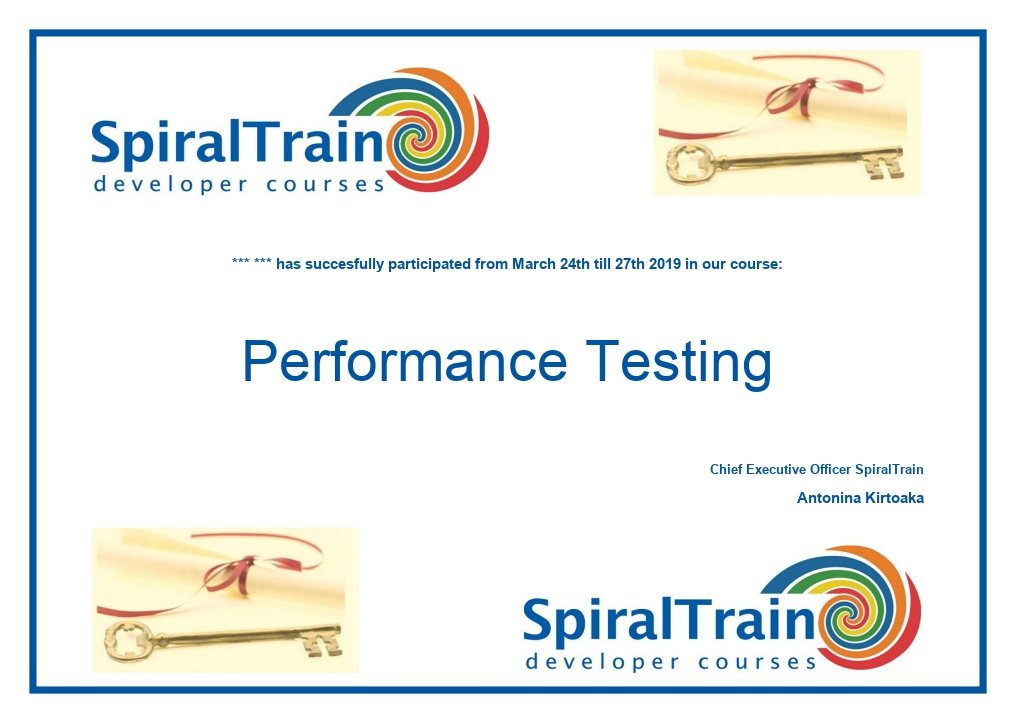-
Learning by doing
-
Trainers with practical experience
-
Classroom training
-
Detailed course material
-
Clear content description
-
Tailormade content possible
-
Training that proceeds
-
Small groups
In the course Performance Testing you will learn how to obtain quantitative results on the performance of applications under different test scenarios.
Performance is an aspect that is becoming increasingly important and is a prerequisite for making applications a success. Downtime, visitors clicking away and negative media attention can all be the result of poor performance of an application.
During the course Performance Testing a method is developed with which the performance of an application can be measured and the results can be analyzed.
In the first place the course Performance Testing pays attention to making a test plan with parameters such as workload and transactions to be tested. This also includes stress testing. Tools such as JMeter and Gatling are used when specifying scripts and executing them.
The results of the tests are reported and analyzed. Conclusions and recommendations are made based on the measurements.
Finally the course Performance Testing pays attention to evaluating qualitative aspects such as scalability and reliability.
The course Performance Testing is intended for testers, developers and others who want to learn the tools and techniques of performance testing.
Experience with testing is required. Experience with the basic principles of programming is recommended, but not strictly necessary.
The training Performance Testing is an interactive classroom training with room for your own cases. It is a hands-on training in which theory and practice are interchanged. The theory is presented on the basis of slides and demos. Several scenarios are implemented as exercises. The course times are from 9.30 to 16.30.
Participants receive an official certificate Performance Testing after successful completion of the course.

Module 1 : Intro Performance Testing |
Module 2 : Configuring Tooling |
Module 3 : Creating Test Plan |
|
Performance Aspects Memory Issues Timing Issues Response Times User Experience Perceived Performance BenchMarking Types of Performance Tests Load Testing Stress Testing Performance testing |
Using JMeter Running JMeter Setting Classpath Configuring JMeter Non-GUI mode Using Gatling Gatling Recorder Recording Scenarios Running Gatling Isolate Processes Configure Users |
Designing the Test Defining Workload Simulated Transactions Refining measurements Response Times Resource Usage Web Test Plan Set HTTP Request Headers Add Cookie Support Add File Reporter Saving and Running Test Plan |
Module 4 : Creating Scripts |
Module 5 : Test Execution |
|
|
Configuring Tree Elements Thinning a Test Thread Group Controllers Generative Controllers Logic Controllers Listeners Timers Assertions Configuring Elements Verification Points |
Acquire Data Validate Tests and Tools Prepare for Execution Execute the Tests Refining Measurements Response Times Resource Usage Data Collection Conclusions and Recommendations Tuning and Debugging Reporting Results |
